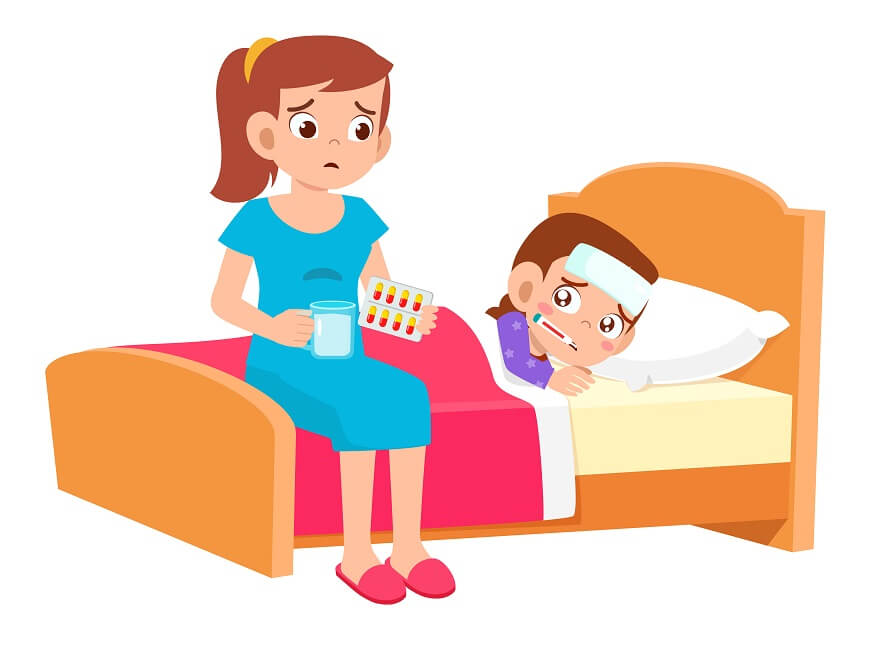While it’s absolutely natural for young children to suck their thumbs as a source of comfort and self-soothing, this habit can become problematic if it persists as they grow older. Thumb sucking beyond the age of 5 can lead to dental and speech issues, and can become a social challenge as well. The good news is, with a little patience and a few strategic measures, it is possible to help your child kick the thumb-sucking habit.
Also Read: Nurturing Social and Emotional Development in Kindergarten
Understanding the Habit
Before you begin, it’s crucial to understand why your child might be relying on thumb-sucking. For many children, it’s a source of comfort, especially during times of stress or discomfort. Therefore, punishment or scolding is unlikely to be effective and could even reinforce the behaviour. Instead, empathy, understanding, and positive reinforcement are more likely to yield results. Children suck their thumbs for various reasons, and it is a common behaviour among infants and young children. Some of the reasons why children suck their thumbs include:
Comfort and Soothing: Thumb-sucking provides comfort and a sense of security for young children. It mimics the feeling of being nursed and can help them relax and self-soothe.
Exploration: Babies and toddlers often explore the world through their mouths, and sucking on their thumb is a way of discovering new sensations.
Natural Reflex: Thumb-sucking is a natural reflex that babies develop even before birth. It’s a survival instinct that helps with feeding and self-calming.
Teething: When babies are teething, they may suck on their thumbs to alleviate the discomfort in their gums.
Boredom or Stress: In some cases, children may suck their thumbs as a response to boredom or stress. It can be a coping mechanism when they are feeling anxious or overwhelmed.
Sleep Association: Thumb-sucking can become associated with falling asleep, making it a habit that persists during nap times and bedtime.
Imitation: Children may observe other kids or family members sucking their thumbs and imitate the behaviour.
Also Read: 7 barriers of communication
Encouragement, Not Enforcement
The first step towards helping your child break this habit is to encourage them, rather than trying to enforce change. Let your child know why it’s necessary to stop thumb sucking – explain in a language they can understand that it might affect their teeth or speech. A visit to the dentist can be helpful in this context, as children often respond positively to advice from professionals.
Identifying Triggers
The next step is identifying triggers. Does your child tend to suck their thumb when they are tired, upset, or bored? Noticing when your child is most likely to engage in thumb sucking can help you anticipate their needs and distract them with an alternate activity.
Providing Alternatives
Provide alternatives for self-soothing. Depending on your child’s age, this could be a soft toy, a favourite blanket, or a stress ball. This can divert their attention and satisfy their need for comfort without the harm associated with thumb sucking. For children who suck their thumb, there are several alternatives to help them break this habit. Here are some suggestions:
Thumb Guard: Consider using a thumb guard, a device designed to discourage thumb-sucking by creating a physical barrier. These can be found at pharmacies or online.
Distraction techniques: Keep the child’s hands occupied with other activities or toys to prevent them from putting their thumb in their mouth.
Gentle reminders: Politely remind the child to stop sucking their thumb whenever you notice them doing it. Be patient and consistent in your approach.
Talk to the child: Have a conversation with the child about the habit and explain why it’s essential to stop thumb-sucking. Make sure to use age-appropriate language and be understanding.
Offer comfort items: Provide a comfort object, such as a soft toy or blanket, to replace the thumb-sucking habit.
Bitter nail polish: Apply a non-toxic, child-safe, bitter-tasting nail polish on the child’s thumb to deter thumb-sucking.
Peer influence: Encourage the child to spend time with friends or family members who do not suck their thumbs. Positive peer influence can be beneficial.
Identify triggers: Observe the situations or emotions that lead to thumb-sucking and try to address the underlying causes.
Consult a professional: If the habit persists and becomes a concern, seek guidance from a paediatrician, dentist, or child psychologist who can provide specific advice and support tailored to the child’s needs.
Also Read: How do you encourage and reward good behaviour in children
Involvement and Goal Setting
Involving your child in the process can significantly enhance the outcome. Let them take ownership of the goal to stop thumb sucking. Perhaps they can create a progress chart or pick out a reward for when they have gone a certain period without thumb sucking. This way, they will feel motivated and responsible, and this self-drive will make the change more sustainable.
Positive Reinforcement
Use positive reinforcement generously. Praise your child whenever they make an effort to stop sucking their thumb, even if they are not entirely successful. Focusing on the effort rather than the outcome can help build their confidence and make them more likely to persevere.
Consistent Reminders
Keep reminding your child about their goal, especially during moments when they are most likely to forget, such as while watching TV or just before bedtime. Make these reminders gentle and supportive rather than reproachful. Remember, breaking a habit takes time. So, try a gradual approach. You could start by setting specific times or places where thumb sucking is not allowed, and then gradually increase these periods.
Also Read: Reasons Why Children Steal: Understanding the Motivations and How to Address Them
Professional Help
If your attempts do not yield results or if the thumb sucking is causing significant issues, do not hesitate to seek professional help. Paediatricians, dentists and child psychologists can provide effective solutions tailored to your child’s needs.
The journey to help your child stop thumb sucking requires a good deal of patience and perseverance. However, by adopting a supportive and understanding approach, you can ensure that your child gives up this habit in a healthy and stress-free way. Remember that every child is unique, so what works for one might not work for another.
EuroSchool urges parents to understand and be willing to experiment with different strategies that can make all the difference. Keep the lines of communication open, listen to your child’s concerns, and reassure them that you are there to support them every step of the way.










